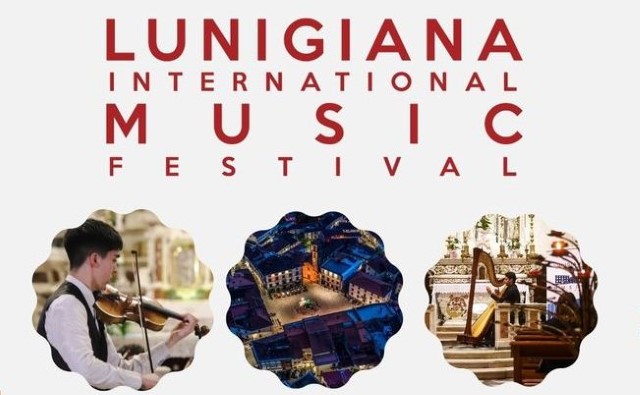
Italy is awash with culture of every variety, but it’s true to say that the Lunigiana is not regarded as a cultural hot spot. Traditional activities are kept alive, but only just – in part because of the ageing demographic of the region and the relative lack of interest exhibited by younger generations whose eyes are primarily set on the future rather than on the past. There are some progressive, forward looking activities, however – an example being the Lunigiana International Music Festival at Fivizzano held in July each year.
Table of Contents
Traditional Music
There are not many folk musicians in the area still performing traditional melodies and songs. The most prominent are Tandarandan. Examples of their work are as follows
Worth having a look at is a YouTube documentary – Bugelli, the minstrel of Lunigiana – which combines local history, folk music and a description of traditional contadini culture from an intensely personal point of view. Helpfully, English subtitles are provided.
Traditional Dance
Ballo liscio (ballroom dancing) is popular in the Lunigiana, dances often being held outside bar/restaurants during local festas.
The Tresconeto is a fast dance in 6/8 time with origins in the Lunigiana. It resembles the Saltarello, is undertaken either by a solitary dancer or a couple, and is performed especially on the first Sunday in Lent. The continually increasing tempo of the dance is meant to test the endurance of the dancers.
Costume
Traditional early 20th century everyday wear for country dwellers was as follows:
Women: Plain, belted mid-length dress with quarter to three quarter sleeves. Often with V-neck. Girls had hem lines just above the knee. Hats not usually worn. Substantial leather shoes. Knitted wool socks/stockings in winter.
Men: Plain or checked long sleeved shirts and plain work trousers held up by leather belts. Hats worn in summer – fair hair and baldness common. Footwear – clogs a regular sight.
Clothing for special occasions was colourful, eccentric and often highly embroidered.
Folk Tales
There was once a strong oral tradition in the Lunigiana but depopulation by migration since WWII coupled with a general lack of interest has meant that many of the stories have been lost. A small selection of those recorded in writing is given below:
- The devil and the farmer
- Pipetta and the merchant
- The magic quails
- The girl at the dance
- Ammazzacento (The Murderer of 100)
The Lunigiana is mentioned in one of Giovanni Boccaccio’s tales. This can be found in the Decameron (Novel 1,4 & Novel 2,6) which was written between 1349 & 1351.
Nursery Rhymes
There are a number of nursey rhymes associated with the Lunigiana. Translation is problematic – the use of dialect is common, words are foreshortened and there are substantial nonsense elements. Some of the rhymes have forms familiar to the Anglo-Saxon world. An example from Castagnetoli, which takes a form not dissimilar from that of “There’s a hole in my bucket, dear Liza” (circa 1700AD – a deadlock rhyme) and “There was an old woman who swallowed a fly” (Burl Ives: 1953 – a cumulative rhyme), is entitled “Baletta has lost her ball”:
Baletta has lost her ball
“Bufetta, will you give me my ball?”
“I’ll give you the ball if you give me the thigh of a calf”
“Calf, will you give me your thigh?
“I’ll give you my thigh if you give me cow’s milk”
“Cow, will you give me your milk?”
“I’ll give you my milk if you give me meadow grass”
“Meadow, will you give me your grass?”
“I’ll give you my grass if you’ll bring me the blacksmith’s iron”
“Blacksmith, will you give me your iron?”
“I’ll give you my iron if you give me the wolf’s bag”
“Wolf, will you give me your bag?”
“I’ll give you my bag if you’ll give me the snout of a pig”
“Pig, will you give me your snout?”
“I’ll give you my snout if you’ll bring me an acorn from the Turkey oak”
“Turkey oak, will you give me an acorn?”
“I’ll give you an acorn if you bring me a sea breeze”
“Sea, will you give me a breeze?”
“Yes”.
The sea gave me the breeze
I gave the wind to the Turkey oak
The Turkey oak gave me the acorn
I gave the acorn to the pig
The pig gave me his snout
I gave the snout to the wolf
The wolf gave me the bag
I gave the bag to the blacksmith
The blacksmith gave me the iron
I gave the iron to the meadow
The meadow gave me the grass
I gave the grass to the cow
The cow gave me the milk
I gave the milk to the calf
The calf gave me its thigh
I gave the thigh to the Madonna
The Madonna gave me the key
I gave the key to Bufetta
And Bufetta gave me back my ball.